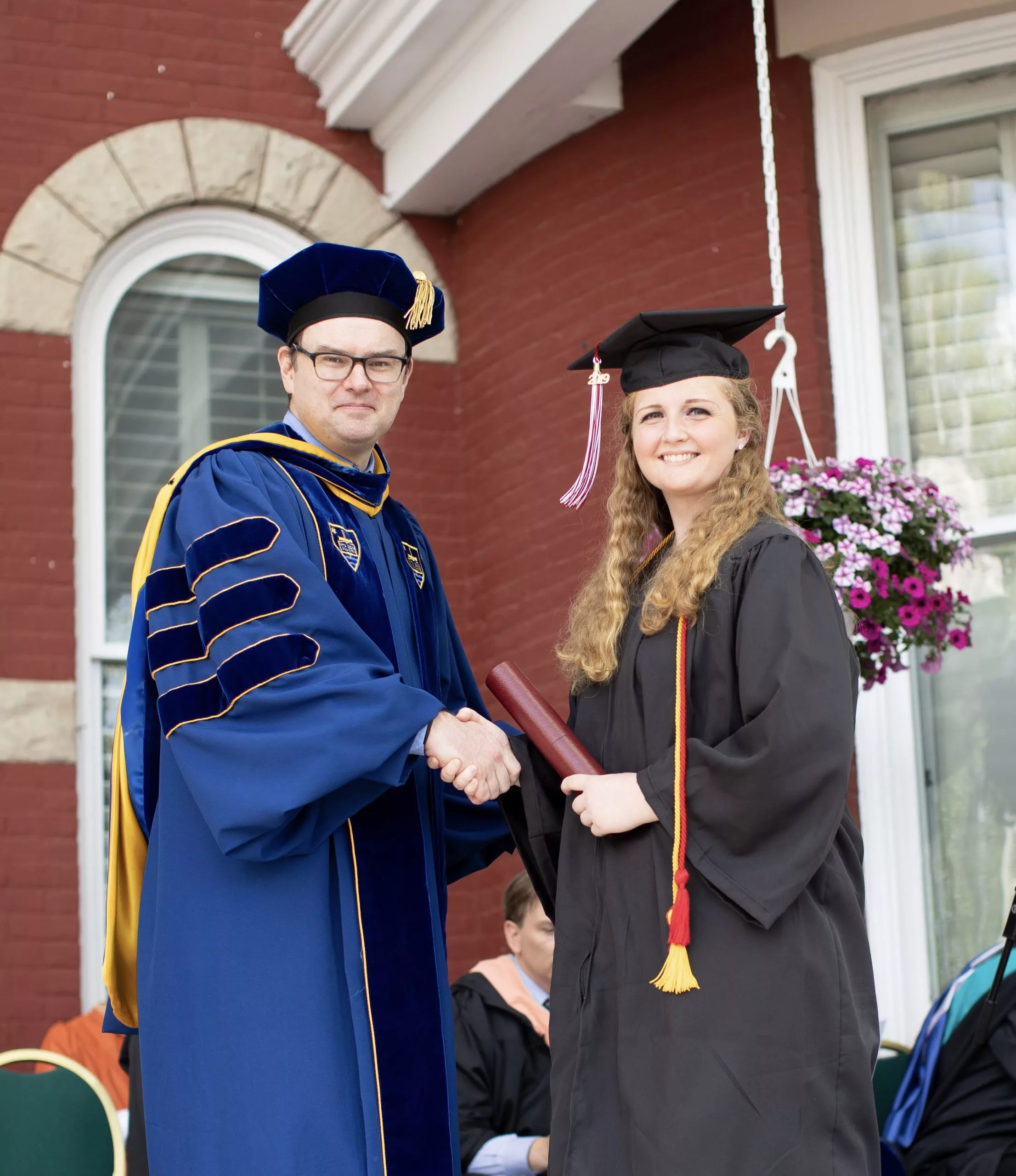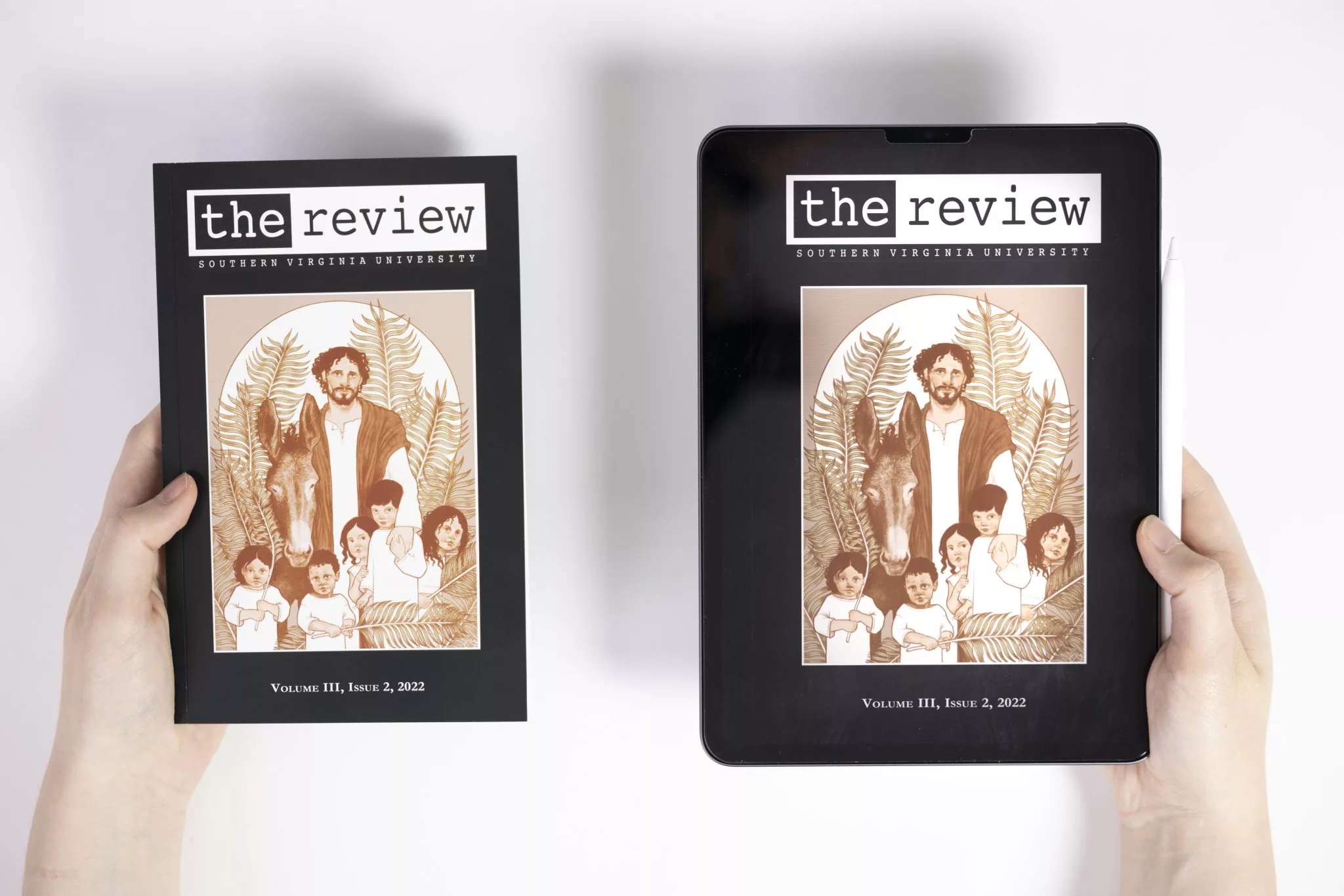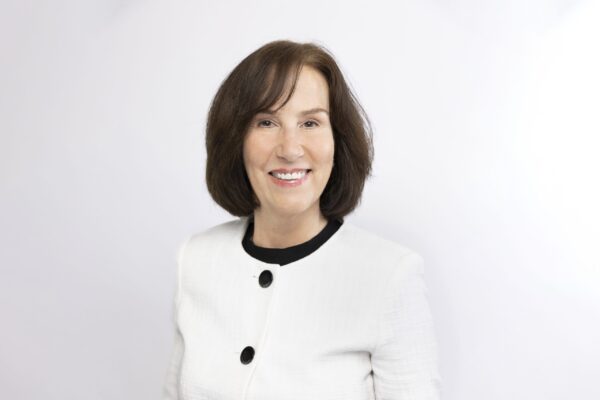Minor
Creative Writing
Creative Writing, a form of artistic expression, is the process of crafting original and imaginative works of poetry and fiction in highly specialized small workshop class sizes of under fifteen students. It encourages the exploration of language, structure, and narrative, as students write as a means of communicating their unique experiences and perspectives into the world. Creative Writing students are challenged to improve their control of language and individual writing style as they study great works of classic and contemporary literature in preparation for future careers in a highly competitive workforce that values strong creative writing and communication skills.

About the Creative Writing Minor
The Creative Writing minor is an excellent addition for those pursuing careers in writing and those interested in developing their writing skills. Students in the program study various genres including great works of fiction and poetry. They also learn to write in various writing styles such as poetry, short stories, and novels. Our small workshop class sizes promote stimulating discussion and the exchange of ideas with both students and professors. Creative Writing minors receive highly individualized attention as they perfect their writing style, study diverse perspectives, and prepare for career paths and graduate school. Students who minor in Creative Writing build life-long bonds with professors and peers. They become lifetime learners, writers, and lifetime lovers of great works of literature.
Students in the program can participate in the Popular Fiction Workshop, taught once a year, to learn about the publishing industry, study current book trends, and receive personal writing advice on projects from authors in the publishing industry. Students can also submit their work to “The Review,” Southern Virginia University’s annual literary journal, which features poetry, short stories, and art.

Learning Outcomes
What you’ll learn in the Creative Writing minor:
- Critical reading and analytical reading learning objectives aid students in their ability to read a variety of literary texts closely, recognizing subtle and complex differences in language within specific literary genres
- Knowledge of a variety of key authors, traditions and movements, and literary and cultural history as it applies to specific works studied
- Knowledge of current book trends and publishing policies
- Strong writing and critical thinking skills as it relates to a student’s specialized study
Career Opportunities
There is an exciting and wide array of potential careers that a Creative Writing minor background opens the doors to, including jobs in writing, publishing, journalism, law, public relations, marketing, library science, and jobs in secondary and higher education.
- Writer/Author, creative, nonfiction
- Publishing, copyediting, editing, administration, book publishing
- Journalism, magazine, newspapers, radio, and television broadcasting
- Teacher, elementary school, high school, college, TESOL (Teaching English as a Second Language)
- Librarian, public and academic
- Marketing, content creation, academic, social media
- Marketing management
- Product management
Getting Started in the Creative Writing Minor
Follow these simple steps below to get a head start in the Creative Writing Minor today.
Enroll
Begin by taking Fundamentals of Creative Writing (ENG 220) in your first or second year
Contact Your Advisor
Get in touch with New tabProfessor Karen Hufford to discuss your interests and goals.
Declare
Turn in a completed PDFDeclare Minor form to the Registrar’s Office.
Questions? Contact the Registrar at emailregistrar@svu.edu.
Related Programs & Concentrations
Stories from the Program

Krislee Twiner Ellsworth (’18)
Published Young Adult Novel Available on Amazon, Barnes & Noble
Link to news articleRead More
Annual Campus Literary Journal Now Available As E-Book
the review, Southern Virginia University’s annual literary journal featuring original student and faculty artwork and writing, is now being offered as an e-book in companionship with the physical edition to allow for increased accessibility and awareness campus-wide.
Link to news article.Read More